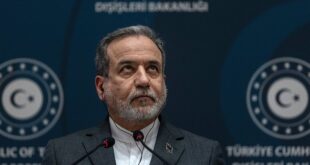STOCKHOLM — The increasingly volatile situation in Iraq is prompting a growing number of Iraqis to seek a safe haven in Europe, where Sweden is one of the most common destinations for refugees.
Of some 40 nationalities seeking asylum in Europe, Iraqis top the list with more than 8,100 applications in the first six months of the year, according to the UN High Commissioner for Refugees (UNHCR).
That is a 50 per cent increase from the same period a year ago.
“The deteriorating situation in Iraq which is on the brink of a civil war” is the main reason for the rising number of refugees in Europe, UNHCR spokeswoman Astrid Van Genderen Stort told AFP.
Countries neighbouring Iraq remain, however, their preferred destination.
At the beginning of November, there were more than 700,000 Iraqi refugees in Jordan, at least 600,000 in Syria and 100,000 in Egypt, the UNHCR said.
In Europe, Iraqis are choosing to flee to Sweden more than to other countries. They are drawn to the northern country because of its generous refugee policy, but also because many of their relatives fled there during earlier waves of Iraqi immigration in the 1990s.
Some 79,200 Iraqis now live in Sweden, making them the second-largest group of immigrants behind Finns, who number 181,600.
“Most Iraqis come to Sweden because they already have relatives or friends there… Sweden has the reputation of being a humane country, a safe and democratic country that respects human rights,” said Hikmet Hussain, the head of the Iraqi Federation in Sweden.
The influx of immigrants has accelerated since the start of the year. In November, 1,559 Iraqis requested asylum in the country, on the heels of 1,100 in September, 486 in May and 313 in January, according to statistics from Swedish immigration authorities.
Their chances of being granted a residency permit are good. Some 80 to 90 per cent of requests have been approved since January.
“Those who get residency permits right now get permanent permits,” said Krister Isaksson, an analyst at the Swedish Migration Board.
Most asylum seekers come from Baghdad and southern Iraq.
“There are few or no countries that send Iraqis back … but what other (European) countries do is that they let them stay but they don’t give them residency permits,” Isaksson said.
Van Genderen Stort concurred, noting that “deportations … are not rife during this time as a result of the very bad situation inside Iraq.” According to her, Iraqi asylum seekers are of all religious and ethnic backgrounds.
In Switzerland, the Iraqi refugees are primarily Kurds, according to Dominique Boillat, a spokeswoman for the immigration authority there.
They are offered accommodations in a refugee centre and are allowed to stay temporarily. “They know we won’t send them back,” Boillat said.
Some 661 Iraqis sought asylum in Switzerland in the first 10 months of the year, compared to 468 in the whole of 2005. But in Germany, where 1,918 Iraqis sought asylum in the first 11 months of 2006, only 1 to 2 per cent are accepted, according to the government.
And in Denmark, a staunch ally of the United States in the war in Iraq and which has deployed troops in the country, there were some 650 Iraqi asylum seekers, 80 per cent of whom are in the process of being deported.
In other European countries, UNHCR figures show that during the first six months of 2006, the Netherlands received 1,954 requests for political asylum from Iraqis, Britain received 325, Belgium had 291 and France only 48.
Isaksson suggested there may be many more Iraqis in some of these countries but they chose to remain illegal, deliberately not applying for asylum “because they don’t think their request will be accepted”.
“This is how Sweden is different,” said Isaksson, “in Sweden they opt to seek asylum because they are likely to get permission to stay.” In a total 36 industrialised countries where the UNHCR has compiled Iraqi refugee figures, Sweden received by far the largest number of asylum requests for this six-month period — with nearly 2,500 applications.
 Eurasia Press & News
Eurasia Press & News


